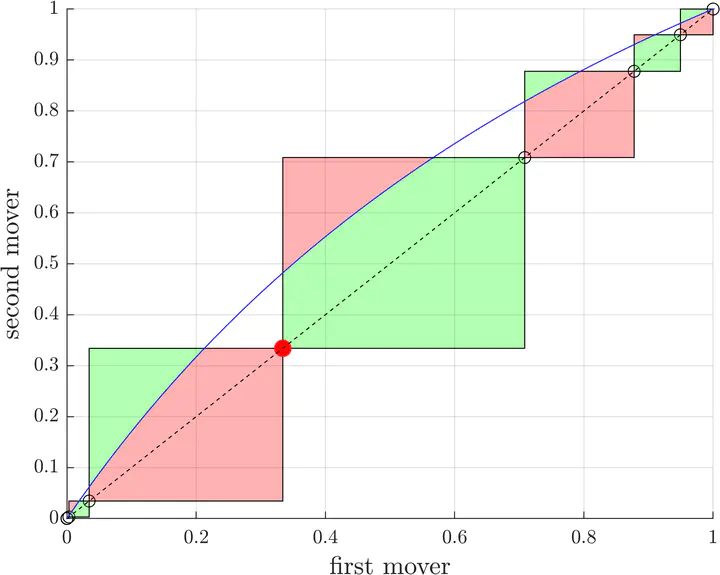The Order of Move in a Conversational War of Attrition

Type
Publication
Economics Letters
This paper investigates computationally when and how the order of move matters in a Conversational War of Attrition (Meyer-ter-Vehn, Smith, and Bognar, 2018). Switching the first mover flips the debate’s outcome for certain type-realizations and triggers two potentially opposing forces on jurors’ ex-ante expected costs. In the finite-horizon version of the game, a last-proposal advantage prevails if the jurors’ bias dominates their impatience, and a first-proposal advantage prevails if impatience dominates bias. In the infinite-horizon version, there is an unambiguous first-proposal advantage. These mechanisms are reminiscent of the Rubinstein (1982) sequential bargaining game.